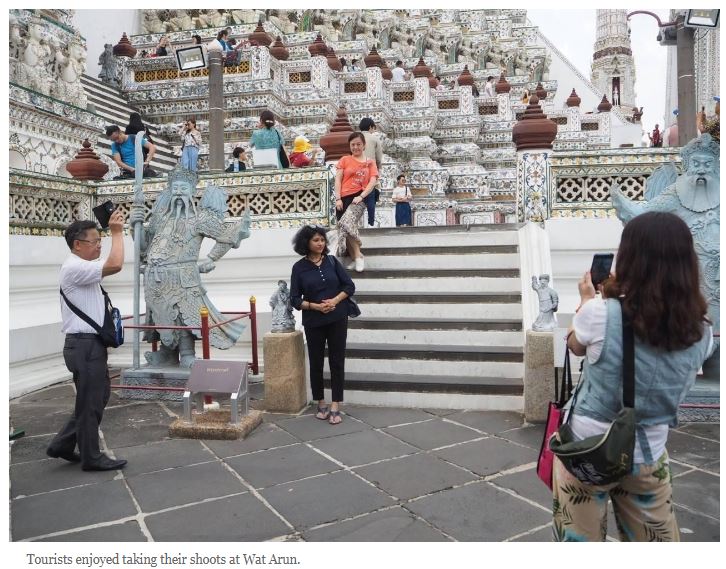Thailand: Baht vexes tourism groups
A strong baht presents the most pressing challenge for tourism this high season after the currency reached its highest level in six years, say tourism business leaders.
The currency surged to 30.22 baht per US dollar on Friday, with some analysts expecting the baht to rise past 30 per dollar next year.
Vichit Prakobgosol, president of the Association of Thai Travel Agents (Atta), said the tourism sector could lose a crucial opportunity to attract tourists to Thailand during the peak season from November to December, falling short of the government’s target for this year.
“We have no control over external factors like the US-China trade spat, but the government and the Bank of Thailand can help solve the problem by lowering the interest rate to help operators in both the tourism and export sectors,” Mr Vichit said.
He said the extension of 2,000-baht visa-on-arrival fee waivers is helping to maintain the number of Chinese tourists at a healthy level this year, even as the yuan weakens.
The baht rose from 33.13 baht per dollar on Oct 29, 2018 to 30.22 a year later, according to the central bank.
“If the baht breaks 30 to the dollar, the tourism sector will be affected, with lower inbound tourists and more Thais travelling abroad,” Mr Vichit said.
The currency issue led the Tourism Council of Thailand to downgrade its prediction for foreign tourist arrivals this year to 39.7 million from 40.1 million, cutting the tourism revenue projection to 1.95 trillion baht from 2.13 trillion baht.
The strong baht is projected to cut individual tourism spending to 4,000 baht a day from 6,000-7,000 baht a day.
Chamnan Srisawat, chief executive of Srisawat Travel & Tour in Krabi, said that in terms of arrivals, most tourists from Europe who travel in groups have already booked their trips in advance, even though the advance booking time has shortened from six months to just two months.
For the short-haul market, Mr Chamnan said tourists are tending towards nearby countries like Vietnam, which has new man-made attractions and cheaper prices.
“Chartered flights from five cities in China to Krabi also decreased by 30%, but we are hopeful they will rebound in December,” he said.
With travel expenses for tourists rising 20% because of the strong baht, Koh Samui lost about 110,000 tourists during the first nine months of 2019, said Vorasit Pongkumpunt, president of the Tourism Association of Koh Samui.
The hotel occupancy rate in Koh Samui for November (still considered rainy season) dropped to 30% from 50% of 27,000 available rooms, based on advance bookings.
On the other hand, Mr Vorasit expects post-Christmas occupancy to stay healthy at 70%.
The Tourism and Sports Ministry reported that international arrivals in the first nine months stood at 29.5 million, a 3.5% year-on-year increase, generating 1.42 trillion baht in tourism income, up 3.5%.
During the same period, Thailand welcomed 8.51 million Chinese tourists, up 1.7% year-on-year. Those arrivals generated 426.8 billion baht, up 4.1%.
The number of travellers from Europe fell by 1.8% year-on-year to 4.69 million in the period, leading to tourism income of 324.75 billion baht, down 2%.
Source: https://www.bangkokpost.com/business/1783664/baht-vexes-tourism-groups


 English
English




